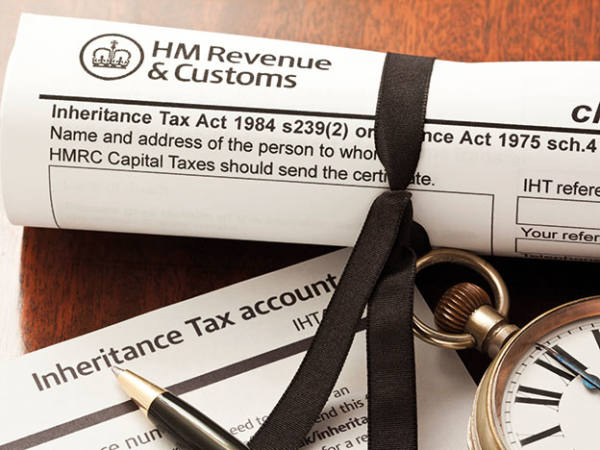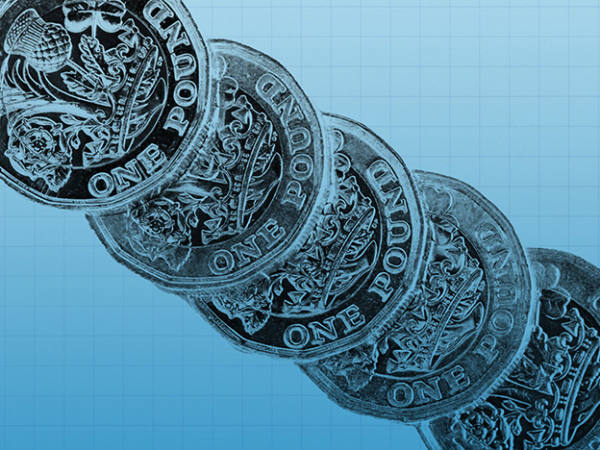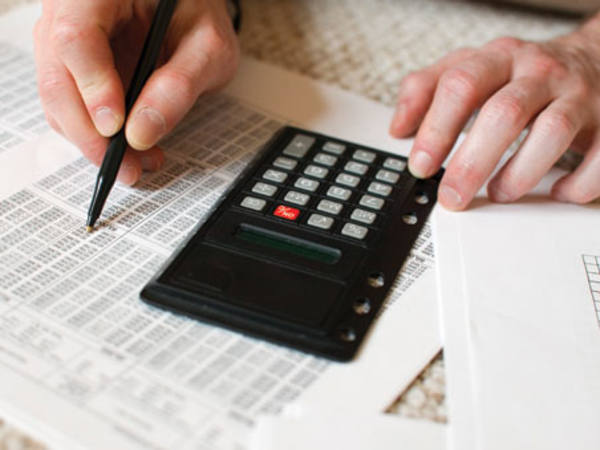- Working beyond retirement could boost your pensions and retirement savings' value and help them to last longer
- If you do this. it is important to understand the impact of contributing to and withdrawing from pensions
- Also consider how it will affect your tax position and if working is financially worthwhile
If you love your job, you may be one of the increasing number of people who works at least part time after retiring or is planning to. And even if you are not so enthusiastic about work you may want to continue to earn an income.
If you are drawing down from investment portfolios as part of your retirement income, working or returning to work could mean that you do not have to draw from them or could draw less from them when their value has fallen due to markets going down. Selling assets when markets are down means that you shrink the size of your portfolio further, making it even harder for its value to recover to where it was at before the falls. Selling when markets are falling also reduces a portfolio's ability to generate income because it has fewer units and shares in investments from which to receive it.
Also see How to handle your portfolio in extreme situations (IC, 11.03.22)
That said, Michael Lapham, director of financial planning at chartered accountants Mercer and Hole, believes that you should have other measures in place to cover periods when markets and the value of your retirement savings have fallen. If selling chunks of your investments contributes to your income, ideally you should have emergency cash savings you can turn to instead when markets have fallen. Advisers typically suggest that if you are in retirement you should hold cash with a value of around two years of income.
See this week’s portfolio clinic on pp20-21 for more on this.
And when you are retired, he suggests that you have enough guaranteed income from sources such as state pensions and annuities in place to cover your essential living costs. This could be supplemented by less stable sources of income such as drawdown pensions and income from a salary.
The rising cost of living means that additional income could be helpful. Even if your pensions and investments are sufficient to cover rising costs, having an income from work means that you do not have do take more from your retirement savings, helping them to potentially last longer. It could also help your overall retirement income to keep pace with inflation if part of it comes from a level annuity which does not rise in line with inflation.
If you have not built up enough retirement savings to fund your lifestyle and the level of annual retirement income you want, continuing to work could be necessary. You could contribute to pensions, depending on your capacity to do this, and individual savings accounts (Isas), further increasing the amount you have to withdraw from later in life.
If you haven't reached state pension age, continuing in work could increase your National Insurance (NI) record to the necessary thirty-five qualifying years you need to get a full state pension
Should you draw from or pay into pensions?
If you'e still working, whether you should draw from pensions depends on the level of income you need. If you are working full time but plan to reduce your hours, you may need to top up your income. You can access defined contribution (DC) pensions from age 55, or 57 from 2028.
However, other than the 25 per cent tax-free sum you can take from your pension, withdrawals are charged at your marginal rate of income tax. So Lapham suggests drawing from other accounts before private pensions. You can withdraw from Isas tax free, and could sell assets outside tax-efficient wrappers, offsetting any gains against your annual capital gains tax (CGT) allowance of £12,300 and any losses.
"If you don't need your pension to supplement your income, leaving it where it is can make sense," says Joshua Gerstler, chartered financial planner at The Orchard Practice. "Money held in a pension is typically invested and can grow free from CGT. So leaving it invested until you need it can help your savings go further."
If your estate exceeds the inheritance tax (IHT) allowances or is likely to, it could make sense to draw income from accounts other than pensions to reduce the size of your taxable estate. Pensions do not fall into your estate for IHT purposes so can be passed onto beneficiaries without incurring this tax.
You also need to assess whether you should pay into pensions, if this is an option. If you are employed, under state pension age and earn more than £10,000 in the 2022/23 tax year, your employer will automatically enrol you into a pension and contribute on your behalf. However, if you also take an income from DC pensions other than your 25 per cent tax-free cash entitlement, you are subject to the Money Purchase Annual Allowance (MPAA). This limits the amount you can add to pensions, without having to pay a charge, to £4,000 including tax relief a year. Taking an uncrystallised funds pension lump sum and buying a flexible or investment linked annuity from which the payout could go down also triggers MPAA. And if you have a capped drawdown plan, a type of pension scheme from before April 2015, and exceed the cap on your income it triggers MPAA.
If you breach the MPAA limit, the charge levied is likely to be worth about the value of tax relief you would have received on contributions over £4,000.
In the first tax year that MPAA applies, only contributions paid to money purchase pensions after the date of the first trigger event are measured against MPAA. For subsequent tax years, all contributions made to money purchase arrangements in a tax year count towards MPAA. The contributions paid before or on the trigger date are measured against the alternative annual allowance – usually £40,000 or the value of your annual salary, whichever is lower, less the MPAA.
If you breach MPAA your pension scheme administrator will let you know but you have to inform other providers with whom you have a pension within 91 days. If you don’t, you might have to pay a £300 fine followed by penalties of £60 a day until you inform your other pension providers.
However, you can take the 25 per cent tax-free sum from your pensions, use them to buy an annuity that gives you a guaranteed minimum income for life or cash in pension pots worth less than £10,000 without triggering MPAA. Receiving money from a defined benefit (DB) pension also does not trigger the MPAA so you could receive any amount of DB income and still contribute up to £40,000 a year to a DC scheme.
If you have triggered MPAA, you can also continue to contribute to DB pensions within your pensions annual allowance, taking into account contributions to a DC scheme which will be counted against MPAA. If you are contributing to both DB and DC schemes you effectively have an annual allowance of up to £36,000 for the DB scheme and £4,000 for the DC scheme, if your standard annual allowance has not been tapered because your overall income exceeds £240,000.
Lapham, meanwhile, points out that an MPAA charge is unlikely to apply to many people who draw from pensions while still working. Even if you have drawn from a DC pension over and above the 25 per cent tax-free cash element, you can still contribute £4,000 a year to pensions. If you and your employer, for example, contribute the minimum requirement of a value worth 8 per cent of your salary a year to a pension, you would need to earn £50,000 or more a year for this to exceed £4,000.
State pension
Receiving the State Pension does not trigger MPAA. However, if you work beyond the minimum age at which you can receive it, currently 66, you could defer when it starts to pay out.
“The state pension may be liable for income tax if your entire income exceeds the Personal Allowance [currently £12,570] and could push you into a higher tax bracket," says Gerstler. "If you don't need the income, it can make sense to defer your state pension. If you do this you will receive a higher amount when you claim it."
If you reached state pension age after 6 April 2016, the payments you will eventually get increase by 1 per cent for every nine weeks you defer – just under 5.8 per cent for every year. And if you fall into a lower tax band in future due to lower earnings and then start to draw your state pension, you will pay a lower rate of tax on it.
Deferring state pension payments could help you stay in as low a tax band as possible in a year in which you are due to receive a large level of income or capital gain. This could be, for example, because you sold a buy-to-let property, received a large dividend from a company or cashed in an investment bond.
However, even though you get a relatively higher level of contributions when you start to take the state pension it takes a long time to make up for the contributions you waived. For example, if you defer the new state pension for one year it takes about 17 years to make up what you missed and if you die before this 'break even' period is complete you lose out financially.
So Lapham argues that as missed state pension payments do not accrue and cannot be passed onto beneficiaries, unlike private pensions, if you are going to take pensions from state pension age the state pension should be the one you access first.
Also see Should I delay taking my state pension? (IC, 19.11.21)
Disadvantages of working beyond retirement
Your tax situation can be more complicated if you work beyond retirement as your income may come from various sources, and you need to report all your earnings.
"Earnings, state pensions and income from other pension schemes are subject to income tax," explains Sean McCann, chartered financial planner at NFU Mutual. "While employees are subject to 'pay as you earn' and receive their salary after tax has been deducted, and those in receipt of [private] pensions have income tax deducted at source by their pension provider, state pensions are paid without deduction of tax. Those with a total income in excess of £12,570 need to declare their total income, including state pension, via a tax return."
If working in retirement pushes you into a higher tax bracket, you could consider stopping other forms of taxable income if you don't need it to meet expenses or look to take it from elsewhere, suggests Carla Morris, wealth director at Brewin Dolphin. "For example, don't take income from your pension – take it from an Isa instead."
If you are over state pension age you do not pay National Insurance (NI) on earnings. But those over that age who work will become liable for the Health & Social Care levy of 1.25 per cent from April 2023.
"At the moment this levy is collected by increasing the standard rates of NI so those over state pension age don’t pay it," explains McCann. "From next tax year, NI will return to previous lower rates and a separate Health & Social Care levy will be charged. The levy will only be charged on earned income above the primary NI threshold, so if this stays the same in the next tax year, those over state pension age will only pay the 1.25 per cent levy on earnings over £12,570. And they won't pay any NI."
The Health & Social Care levy is not charged on pension or other types of income.
If you receive means tested state benefits you should check whether returning to work would impact your overall income.
| How the sequence of returns impacts a portfolio's value when units are sold | |||||
|---|---|---|---|---|---|
| Portfolio 1 | Portfolio 2 | ||||
| Year | Withdrawl | Annual returns | Annual portfolio value (£) | Annual returns | Annual portfolio value (£) |
| 0 | 100,000 | 100,000 | |||
| 1 | £5,000 | 30% | 125,000 | -20% | 75,000 |
| 2 | £5,000 | 20% | 145,000 | -15% | 58,750 |
| 3 | £5,000 | 5% | 147,250 | 5% | 56,688 |
| 4 | £5,000 | -15% | 120,163 | 20% | 63,025 |
| 5 | £5,000 | -20% | 91,130 | 30% | 76,933 |
| Cumulative return | 11% | 11% | |||
| 18% difference in year 5 portfolio value | |||||
| Source: Quilter Investors | |||||











